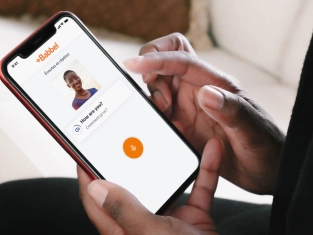by PushtoLearn
Might vs May
Table of Contents
Might vs May - Exercises and Quiz
These exercises focus on the difference between May and Might.
A common confusion in English is the difference between the auxiliary verbs “might” and “may.” Both express possibility or permission, but they aren’t always interchangeable. Let’s break down when to use each one.
Using “May”
“May” is a useful verb for showing possibilities or asking for permission politely. Here’s how it works:
Possibility: “May” suggests that something could happen. For example, “It may rain later” means that rain is a possibility.
Permission: “May” is used to ask for or give permission in a formal way. For instance, if you want to leave a room politely, you might say, “May I leave the room?”
Examples of “may” in use:
-
"May I use your phone?" – A polite way to ask if you can use someone's phone.
-
"We may visit Grandma this weekend if she feels better." – Indicates a possible visit depending on her health.
-
"Yes, you may start now." – Formally giving permission to begin.
-
"There may be more guests than we expected." – Suggests that the number of guests might increase.
-
"May I have the window seat, please?" – Politely asking for a specific seat.

Using “Might”
“Might” is another auxiliary verb that talks about possibilities, but it suggests a lower chance than “may.” It’s useful for expressing doubt or speculation.
When comparing “might” to “may,” think of “might” as more uncertain. If “may” suggests a fair chance of something happening, “might” indicates a weaker possibility.
Examples of “might” in use:
-
"We might go to the park, but it looks like it could rain." – “Might” shows that the plan is very tentative because of the weather.
-
"She might come to the party if she gets off work early." – This sentence expresses uncertainty about her attendance.
-
"You might want to check that again." – A soft suggestion indicating that checking again is a good idea but not mandatory.
-
"He might get the promotion, depending on the final review." – “Might” suggests that the promotion is uncertain and depends on future conditions.
-
"They might travel to France next year if they save enough money." – Indicates that the trip is one possible outcome among others.
Comparing ‘Might’ and ‘May’
In English, “might” and “may” are often used interchangeably, but they serve different purposes and convey different levels of likelihood.
Might: Suggests something could happen, but the odds are not very strong. Used in uncertain or speculative situations.
May: Used to express permission in a formal way and indicates a higher likelihood of something happening compared to “might.”
Simple Table to Show the Differences:
|
Point |
Might |
May |
|
Probability |
Less likely, more uncertain |
More likely, somewhat certain |
|
Permission |
Rarely used for permission |
Commonly used to grant formal permission |
|
Formality |
Informal and formal |
Mostly formal when granting permission |
|
Usage |
Speculative, uncertain outcomes |
Probable outcomes, formal permissions |
FAQ
What is the difference between “may” and “might”?
“May” implies a higher chance of something happening compared to “might,” which suggests a more speculative or uncertain possibility.
When should I use “may”?
Use “may” when indicating a possibility that is more likely to occur or when asking for formal permission. For example, “You may leave early if you finish your work” or “It may rain tomorrow.”
When should I use “might”?
“Might” should be used when discussing a possibility that is less certain or more hypothetical. It’s often used in situations where the outcome is doubtful. For example, “It might snow tonight, but it’s not very likely.”
Are there any specific grammar rules for “may” and “might”?
“May” is generally used for present or future possibilities, while “might” is often used for less certain, hypothetical situations. Both can be used interchangeably in some contexts, but choosing one over the other can change the meaning of a sentence by indicating different levels of likelihood.

